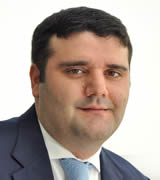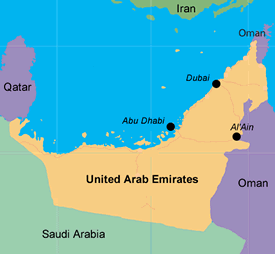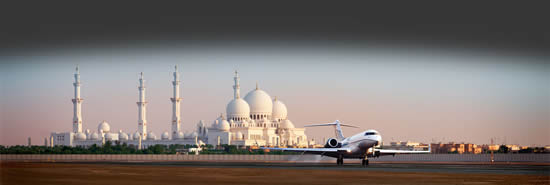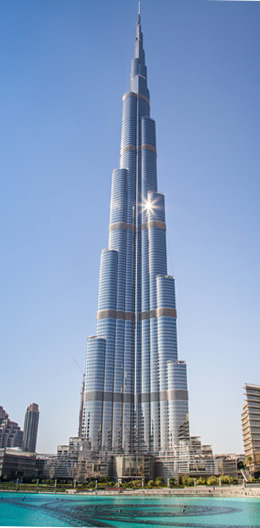| BlueSky Business Aviation News | |||||||||||||||
|
|||||||||||||||
Dubai is one of the main cities of the United Arab Emirates (UAE). Itís not only the city that has the tallest tower in the world, the city that will host the world exposition of 2020, or the city that has skiing in summer, but Dubai is also a city that has some of the most liberal laws for doing business in the Middle East.
We are going to brief readers about the important regulations and operational considerations that are required when planning business flights to UAE. Airports The three main airports that commercial flights operate to in UAE are Dubai International Airport (OMDB / DXB), which is the hub of Emirates Airline, Abu Dhabi International Airport (OMAA / AUH), which is the hub of Etihad Airways, and Sharjah International Airport (OMSJ / SHJ), which is the hub of Air Arabia, the first low-cost carrier in the Middle East. While business aviation operators flying to Dubai prefer landing in OMDB as itís nearer to the city of Dubai, parking in OMDB is very hard to secure, besides the fact that the airport is strictly slot-coordinated. Even if parking is secured, it is very expensive. Slots in OMDB are calculated based on On-Blocks and Off-Blocks, and not landing or take-off. Slots are valid for only 15 minutes plus or minus. Operating to OMDB at an off-slot time or without slots is subject to expensive fines ranging from $1400 to $2800. Al Maktoum International Airport (OMDW / DWC), located in Dubai World Central, which was recently renamed Dubai South, is the second most important international airport in Dubai. It offers plenty of space for parking. Therefore, operation to OMDW is always recommended for longer ground times. OMDW is also nearer to the new Dubai, such as when your destination is Dubai Marina or Jumeirah Lake Towers areas. Operating to OMDW requires a slot, but itís generally available.
In Abu Dhabi, Al Bateen airport (OMAD / AZI) is the only business aviation dedicated airport in the Middle East. This airport is more preferable to business aviation as itís in the heart of the city of Abu Dhabi, compared to OMAA which is around 20 kilometers from the city. Sharjah International Airport (OMSJ / SHJ) offers an alternative to OMDB, when parking in Dubai is unsecured. Itís 30 minutesí drive to downtown Dubai outside of the peak traffic hours, which are normally in the early morning and the afternoon. Other international airports in UAE include Ras Alkhaima (OMRK / RKT) and Al Fujairah (OMFJ /FJR) which are both nearer to Sharjah, and Al Ain (OMAL / AAN), which is located in the Emirate of Abu Dhabi. All the above mentioned airports are airports of entry (AOE), and they operate 24 hours a day. If landing in UAE as a technical stop, OMDW, OMAD and OMSJ are great choices, as they have plenty of parking availability and short aircraft taxi time in addition to hydrant and bowser fueling services. Operating Permits Overflight permissions for entry into UAE airspace is not required, providing the operation is in full compliance with all aspects of the relevant UAE regulations. For example, IFR is mandatory within Dubai and Fujairah CTA, and aircraft without serviceable transponders will be denied ATC clearance into UAE airspace. A landing permit is required for all types of operation, but itís normally an easy, straightforward process. The airports of UAE exist in five different emirates of the UAE, and each emirate has its own Civil Aviation Authority (CAA) with different permit requirements. For example, an OMSJ landing permit requires a certificate of installation of ACAS II or TCAS. Obtaining a landing permit to UAE does not require a local sponsor letter, but the name of the lead passenger is required. When operating to UAE, special insurance coverage is required for the permit to be issued. Insurance must be in Special Drawing Rights (SDR), and coverage varies depending on the weight of aircraft. For example, according to GCAA circular information bulleting 06/2010, the minimum insurance required for category 7, which is for aircraft with MTOW from 25 to 50 tons, is SDR 150,000,000 / $211.135.000. Ground Handling Services
It is wise to fuel the aircraft upon arrival to avoid the possibility of departure delay when operating to congested airports like OMDB. Visas, Customs and Immigrations Crew arriving to UAE should hold an international valid crew ID with expiration date printed on the card. Crew ID must also hold company name and crew position. Crew General Declaration must be electronically generated in Dubai. The GENDEC must be stamped by the immigration of the airport of origin. Crew passport must be valid for six months, while crew ID must be valid for three months. With the exception of nationals of some countries who can obtain a visa upon arrival into UAE, all passengers require a visa before entry. Tourist and business visas can be arranged by your travel agent or local sponsor, who will send you a copy of the visa, and you can enter the country by collecting the visa upon your arrival into UAE. Hotels and Transportation UAE has very wide variety of hotels from all levels, including plenty of 4 and 5 star hotels. Most of the international hotel chains have hotels in UAE. Hotel occupancy rate is high. The high season in UAE is in the winter, from November to April, as the weather is cool in these months. Hotel rates in UAE are generally more expensive compared to other parts of the world. In Dubai, the Marriott Marquis is very much preferred by the crew, as itís located in Dubai Business Bay, and is near to Dubai Mall, one of the largest shopping malls in the world, and Burj Khalifa, the tallest tower in the world. When operating to OMSJ, bear in mind that Centro, a new business hotel operated by Rotana, is now open near the airport. Traffic in UAE is a big issue, despite having world-class roads and highways. Understanding the pattern of traffic is recommended to be able to reach the airport on time. Itís recommended to choose a hotel that is close to shopping malls, and there are plenty of them in UAE, so that crew need not commute far while staying in UAE. Inflight Catering Emirates Flight Catering is the main aviation caterer in the airports in Dubai, OMDB and OMDW. Gate Gourmet, the international inflight catering provider, runs an aviation inflight catering facility in Al Bateen airport OMAD. While UAE is a liberal country, Islam is the main religion. Accordingly, compliance with Islamic rules is expected when operating to UAE. Accordingly, port is not served by in-flight caterers, and alcohol cannot leave the aircraft, as a special permit is required for alcohol consumption. UAE is one of the safest countries in the world. Hence, itís possible to walk around freely with no worries, especially in the big cities like Abu Dhabi and Dubai. UAE airports are under heavy governmental security around the clock. No private security is permitted in the airside. Aviation plays a key role in UAE economic development policy. The country has a liberal open sky policy, track record in safety, and is home to many successful commercial and general aviation aircraft operators. The business aviation infrastructure in UAE is also among the best not only in the Middle East, but also globally. Therefore, when planned correctly, business aviation operations to UAE will be enjoyable, memorable and hassle free.
Dr. Adnan Branbo is the Chief Executive Officer of iJET, a flight support service provider based in Malta and Dubai. iJET services include over-flight and landing permits, credit ground support arrangements, and highly competitive aviation fuel. iJET network covers the world, through alliances and relationships with local agents and major suppliers around the world. Adnan can be reached at: adnan@ijet.aero Also in this series - Operating your Business Flight to: Qatar | Nigeria | Jordan | Algeria | Angola | Oman | Sri Lanka | Mauritius
|
|||||||||||||||





